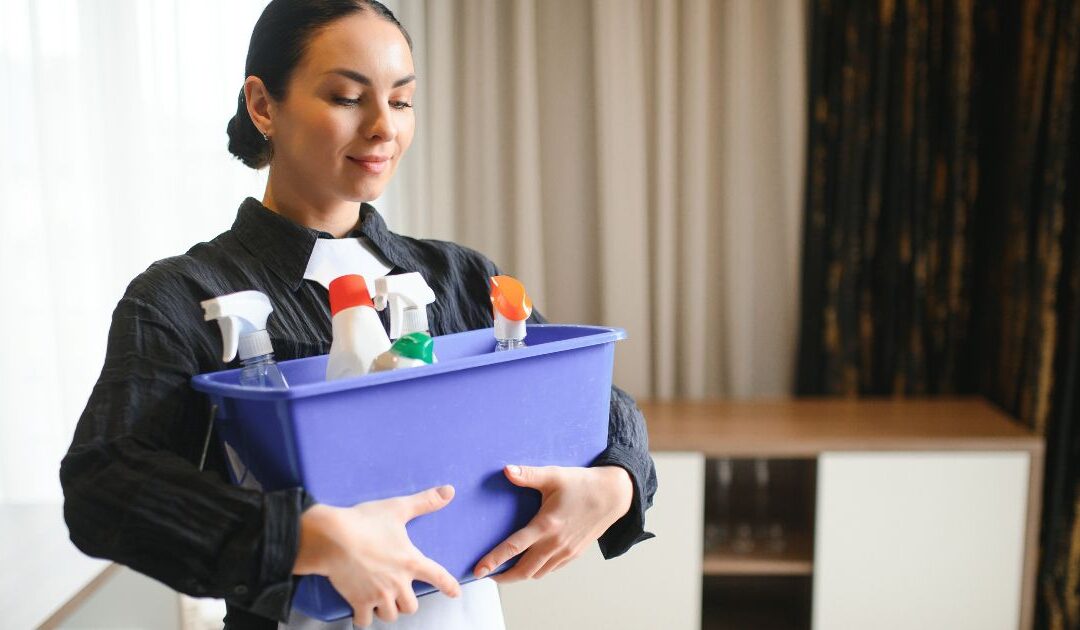What Is the Lapels Dry Cleaning Franchise Opportunity?
Lapels Dry Cleaning (also known as Lapels Cleaners) is a dry cleaning and laundry services franchise founded in 2000. Based in Naples, Florida, it is led by CEO Kevin DuBois. Lapels began franchising in 2001 and has grown to roughly 80–85 locations across the U.S.. The brand’s claim to fame is its 100% non-toxic, eco-friendly cleaning process, positioning Lapels as a “green” leader in the ~$9 billion garment care industry. Franchisees can choose from several formats (full-service plants, satellite drop-off stores, pickup/delivery routes or laundromats) to match their budget and market. In addition to standard dry cleaning and wash/dry/fold laundry, Lapels locations often include tailoring, alterations, wedding gown preservation, leather and suede cleaning, shoe repair, fur cleaning, and other specialized services. This breadth of offerings helps attract a broad customer base and multiple revenue streams.
Company Overview and Industry
Lapels operates as a franchise under Clean Brands (Next Step Franchising, LLC). It’s recognized in Entrepreneur Magazine’s Franchise 500 and other rankings for 20+ years. The corporate team emphasizes professional branding and technology (POS systems, garment tracking, pickup lockers, mobile apps) to support franchise growth. In short, Lapels targets residential and light commercial accounts that need regular garment care, leveraging its eco-friendly image to stand out.
What Franchisees Get
Franchisees benefit from a fully outfitted business. Lapels provides each location with professional store design, fixtures, and a complete point-of-sale system. New owners receive hands-on training at an existing store and at corporate headquarters before opening. Detailed operations manuals and ongoing field support ensure franchisees can follow a proven system from day one. A 2% national advertising fee funds marketing campaigns (SEO, social media, local ads) so that owners get a steady stream of customers. Lapels often offers additional tools like branded uniforms, locker-drop pickup systems, and mobile ordering to enhance convenience. Veterans typically receive a discounted franchise fee, reflecting Lapels’ military-friendly policy.
- Services Offered: Lapels locations deliver full-service dry cleaning and laundry for everyday garments and specialty items. This includes professional cleaning of suits, dresses, linens, and delicate fabrics, plus wedding gown preservation, leather/suede cleaning, fur and rug care. Stores also provide tailoring, alterations, and shoe repair.
- Ancillary Income Streams: Beyond basic cleaning, franchisees can offer wash/dry/fold laundry service, 24/7 locker drop-offs, and free pickup/delivery to both homes and offices. These add-ons boost recurring revenue and customer loyalty.
- Support & Branding: Owners join a national brand with decades of name recognition. Lapels supplies marketing materials and branded assets, and operates a shared reservations/ordering platform. The corporate team handles national ad campaigns (via the ad fund) to drive local traffic. Franchisees also gain access to regular conferences and a franchisee advisory council, which allow them to give feedback and stay updated.
Startup Costs and Ongoing Fees
- Total Investment: Opening a Lapels franchise typically requires $100,000 to $730,000 in total capital. The wide range reflects different models. For example, a small pickup-and-delivery route model can start around $42k–$73k, while a full-service plant (with extensive equipment) costs $391k–$730k. These figures include build-out, equipment, initial inventory, and working capital.
- Franchise Fee: The initial franchise fee is in the range of about $25,000–$50,000. (Lapels has been cited as $50k standard, with veterans and multi-unit buyers often getting a discount.)
- Ongoing Fees: Lapels charges a royalty around 6–8% of gross sales plus roughly 2% of sales for the national ad fund according to sharpsheets.io. These fees help cover brand support and advertising.
- Other Expenses: There are additional costs such as a one-time training fee (about $7,000), a solvent/chemical fee (~$2,500), and usual insurance, rent, and payroll. Franchisees also need to budget for any local permits and grand opening marketing (Lapels suggests ~$8,900).
- Financial Requirements: Lapels typically looks for owners with a net worth in the mid-six-figures (often cited around $350k–$500k) and liquid capital of about $100k–$150k. These thresholds ensure you can cover the investment and sustain initial operations.
Performance Data: Public filings indicate a typical Lapels location grosses on the order of $361,000 per year. Assuming modest profit margins (~15%), that works out to roughly $50–$60k EBITDA annually. (By comparison, one industry report noted similar laundry cleaners average about $466k in sales.) More recent data suggests some Lapels stores do even better: a listing cites an average unit revenue of $448,130 in 2023. Of course, actual earnings will vary widely by location, market, and operator skill. Prospective owners should review the Item 19 financial disclosure in the FDD and talk to existing franchisees to understand realistic earnings for their territory.
How the Industry Itself Compares
Lapels Dry Cleaning is in the commercial laundry industry. Let’s consider how that industry stacks up, especially compared to commercial cleaning services (Assett’s industry).
Lapels Dry Cleaning Industry Advantages
- Recurring Customer Need: Clothes must be cleaned regularly (at least monthly or seasonally for many consumers). Dry cleaning has built-in repeat business: customers often drop off work attire or household items on a schedule. This provides predictable revenue streams.
- Premium Service Niche: By specializing in eco-friendly, high-quality garment care, Lapels avoids some price competition. Customers of all income levels still pay for convenience and garment safety (e.g. wedding dresses, leather items). This can translate to higher average transaction values than a commodity laundromat.
- Multiple Revenue Streams: Aside from basic dry cleaning, Lapels franchisees can upsell services like tailoring/alterations, stain removal, and home pickups. These services diversify income and help during slower seasons.
- Established Brand and Support: The dry cleaning segment is well-understood, and Lapels provides the business model, training, and marketing so franchisees don’t have to build a brand from scratch. This can give new owners confidence and a clearer path to profitability.
- Local Scale: Dry cleaning is mostly a local, protected market. Once a franchisee builds a neighborhood client base, repeat customers can provide stability without requiring constant new client acquisition at scale.
Lapels’s particular focus on 100% non-toxic cleaning also taps into the growing demand for green solutions in household services. For the right buyer, this industry can be appealing and relatively recession-resistant (people still launder uniforms and linens even when budgets tighten). It also isn’t limited to warm months – cold weather gear and holiday gatherings keep many dry cleaners busy year-round.
Compared to Commercial Cleaning Industry
Commercial cleaning (office, school, and facility cleaning) has its own set of advantages over dry cleaning:
- $100B+ Recession-Resilient Market: The commercial cleaning market is enormous (over $101 billion in the U.S. and growing). Every office, school, hospital, warehouse and retail store needs cleaning, regardless of economic cycles. Even the 2020 pandemic did not shut down demand – in fact, commercial cleaning services were deemed essential and many franchisors saw growth. By contrast, the dry cleaning market is smaller (about $9B) and tied to consumer spending on garments.
- Predictable Recurring Revenue: Commercial cleaners usually operate on multi-year contracts with guaranteed monthly payments. Once a building signs on, the cleaning revenue is “sticky” – the client simply pays each month as part of their facilities budget. Offices sign contracts upfront and rarely switch providers abruptly, giving franchisees stable income. (Lapels owners have recurring business too, but it’s generated by individual visits rather than secured contracts, so it can be less predictable.)
- Lower Startup Costs, Easier Scaling: Office cleaning requires minimal equipment (basic cleaning supplies and vacuum cleaners) and little fixed overhead. There’s no need to buy specialized machines or leases a plant. This means an entrepreneur can start small and scale quickly by adding clients. Assett emphasizes that even with low investment, owners can reach $1M+ in sales, whereas Lapels’s highest-end stores need large capital.
- Lifestyle & Operations: Assett’s model is designed so owners work on the business, not in it. You hire teams to do the cleaning while you manage operations and sales. In many traditional janitorial franchises, owners end up working daily cleaning shifts. Assett brands itself as an “Executive Franchise” – owners focus on acquiring buildings and business strategy, not grabbing a mop. This executive approach contrasts with the hands-on style usually required in dry cleaning shops, where the owner may need to be present and even handle tough jobs directly.
- First-Time Friendliness: Commercial cleaning franchises often attract new entrepreneurs because the learning curve is straightforward. Assett, for example, explicitly targets first-time business owners and promises comprehensive training. Dry cleaning involves technical processes (solvents, temperature control) that require specialized knowledge, making it harder for an absolute beginner.
In summary, commercial cleaning offers a much larger addressable market, steadier contracted income, and simpler logistics. Cleaning contracts are ongoing budget items for clients, and service providers can scale by adding staff – not by investing in new factories. By comparison, the dry cleaning industry can involve seasonality and expense: for instance, garments like coats or dresses spike in winter and spring, and families may cut back on cleaning luxuries during slow times. Dry cleaning equipment is costly and takes up real estate. Customers are individual consumers (with emotional buying patterns), whereas cleaning clients are businesses with regular needs.
For an entrepreneur seeking a scalable, recession-resistant franchise, these factors make the commercial cleaning industry generally more attractive over the long haul.
How the Assett Franchise Compares
Assett Franchise operates in the commercial cleaning sector, so it directly leverages the advantages above. Below we highlight why Assett’s model can be especially appealing (while still acknowledging Lapels is strong in its space).
Simpler Systems, Bigger Potential
Assett’s founder, Matt Pencarinha, built the business to be an “executive-style” cleaning company where the owner runs the business instead of doing the janitorial work. In practice, this means Assett franchisees focus on sales and management. The results speak for themselves: Assett owners average about $1.53 million in annual revenue, several times the typical volume of a single dry cleaner. Even in year one, Matt’s own Assett location hit $557,000 recurring revenue. By comparison, most Lapels franchisees report gross sales under $500,000.
Because Assett is already a successful cleaning business, new owners don’t need industry experience – Assett provides a full playbook. Each franchisee gets personalized startup training directly from the founder and core team. You’ll learn exactly how to market, bid contracts, and manage crews. All systems (from accounting to customer acquisition) are pre-built for you. This lets even first-time entrepreneurs step into business ownership with confidence. In contrast, a Lapels franchisee would need to learn garment-care specifics and retail staffing on the fly. Assett’s “ready-to-scale” approach makes it easier to aim for that $1M+ income without reinventing the wheel.
Automated Hiring = Time and Money Saved
One of Assett’s biggest advantages is its proprietary hiring system, something no other cleaning franchise offers. This automated platform continuously recruits, screens, and schedules job applicants on your behalf. The impact is huge: instead of spending countless hours interviewing and onboarding staff, Assett reports the system cuts owners’ hiring workload by 20–30 hours per week. In other words, an entrepreneur can replace a full-time hiring manager with an algorithm.
With this tool, franchisees spend roughly 2–5 hours per week on hiring tasks, and the rest of the time is free to build the business. It also means consistently staffing jobs, reducing turnover and overtime costs. Better staffing quality helps keep clients happy (a clean office done by a trained crew means customers stay longer). By automating the biggest pain point in service businesses, Assett saves owners tens of thousands of dollars and protects their time. Lapels and other hands-on franchises typically leave hiring entirely to the owner, often becoming a full-time job in itself.
Personalized and Founder-Led
Assett is founder-owned and family-run – a fact that shows in its franchisee experience. Matt Pencarinha still owns the brand personally, according to bizbuysell.com. When you join Assett, you deal directly with the leadership team; in fact, Matt teaches the launch training himself. This level of access and support is rare. Many franchisees comment on feeling like part of a close community, sharing ideas directly with the people who built the company. Assett’s core values (“People First”, “Partnership in Everything”, etc.) emphasize respect and collaboration.
Because Assett isn’t controlled by outside investors, it can adapt quickly and keep costs low. For example, Assett’s royalties and fees are relatively modest (3–7% royalty plus a tiny ad fund), leaving more profit for the owner. Each territory has only one franchisee, so there’s no internal competition for accounts. This contrasts with many franchises (both in cleaning and dry cleaning) where fees are higher and multiple franchisees may share an area. In short, Assett’s founder-led, mission-driven model means franchisees get personalized guidance and a strong support network, which appeals to owners who want a relationship with leadership.
Final Thoughts
Lapels Dry Cleaning is a legitimate franchise opportunity with several attractive features: it’s a proven model in a well-defined niche, backed by strong branding in eco-friendly services. For the right investor who loves retail laundry and community-based service, it can be a solid business. The monthly fee and customer loyalty can be stable, and the green positioning helps in today’s market.
That said, Assett Franchise offers a different kind of opportunity. Because it sits in a vast, essential industry, the ceiling for growth is much higher. Assett provides a turnkey framework that lets owners step back from day-to-day labor and build a true enterprise. Its automated hiring, low equipment needs, and focus on recurring B2B contracts mean owners typically earn more with less hands-on work. In our view, Assett’s commercial cleaning business model delivers greater long-term stability and scalability compared to a single-unit dry cleaner.
“If you’re exploring franchise opportunities and want a model that can deliver long-term income, flexibility, and control — we’d love to show you how Assett Franchise can help you build a business that works for your life. Visit https://assettfranchise.com to connect with our team and learn more.”




